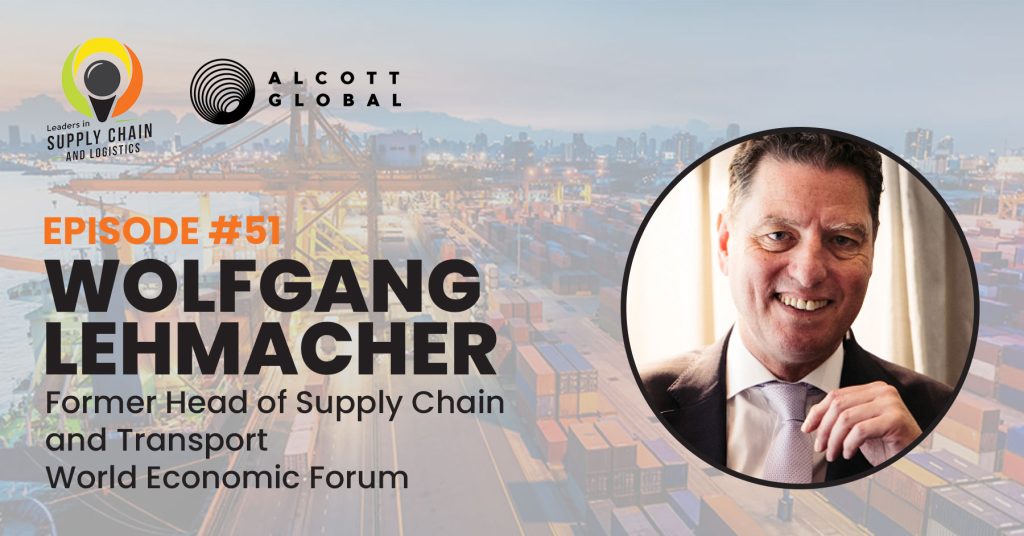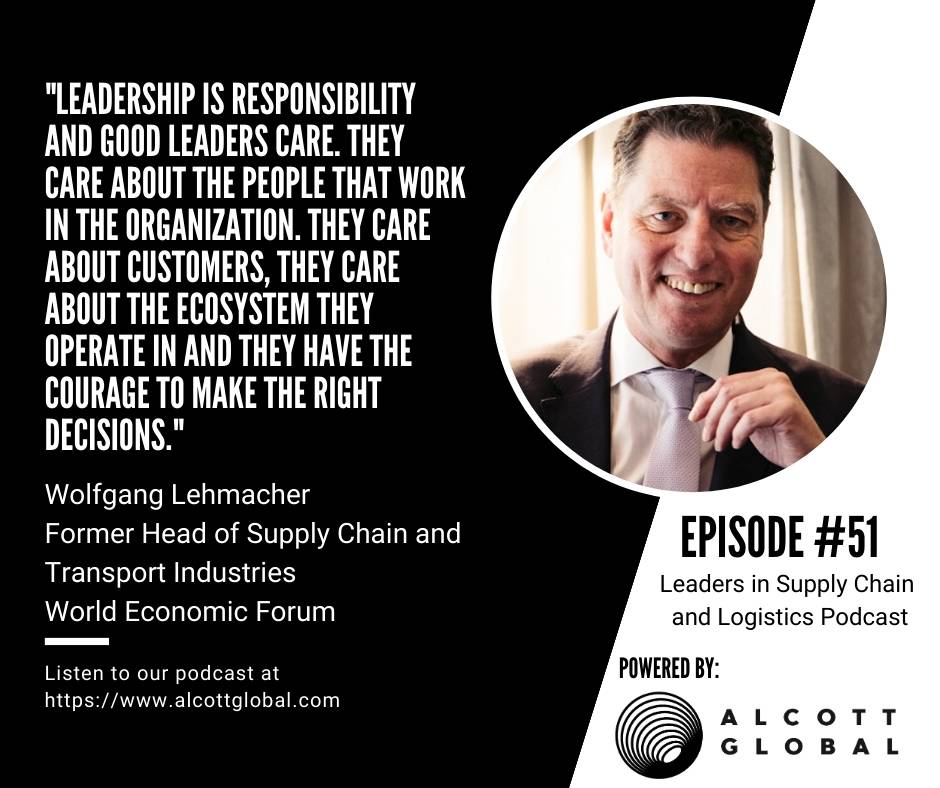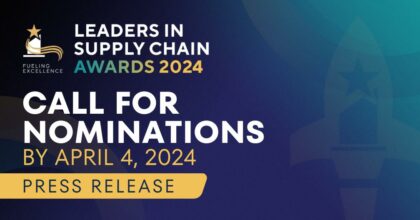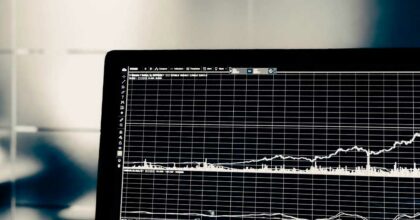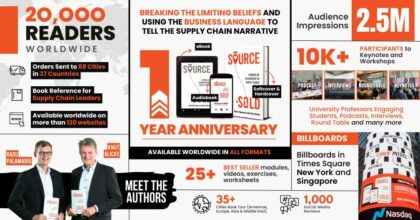Wolfgang Lehmacher, a global thought leader in the world of supply chain and former head of supply chain and transport industries for the world economic forum. During his career, he has been heading and supporting country, regional and global innovation, expansion and investment projects of Fortune 500 and other leading companies, as well as startups, social enterprises, and not-for-profit organizations.
In roles such as President and CEO of GeoPost Intercontinental, the express parcel holding of French La Poste, several regional management roles at TNT Europe, and Director Supply Chain and Transport Industries at the World Economic Forum.
His numerous publications, such as the books „Wie Logistik unser Leben prägt“ (How Logistics Shapes Our Lives), „Logistik im Zeichen der Urbanisierung“ (Logistics in Light of Urbanisation) and Global Supply Chain explain the importance of supply chain, transport, and logistics for economy and society. as well as the need for the continuous transformation of the global economy towards a more circular and sustainable model.
Listen to the full discussion here:
- Stream by clicking here.
- Download as an MP3 here.
Connect with the Guest:
Wolfgang Lehmacher: Linkedin | Twitter
Some of the highlights from the podcast:
- Initiatives at the World Economic Forum around transportation, logistics, and technology
- The two mega-trends in the Supply Chain
- Shipping and aviation industries impacted by CO2 emission reduction bills
- Which countries are leading the way in implementing tech
- AI, cybersecurity, and financing tools around the world
- What is needed for the CEOs and board members of the future
- What skills does the industry need most
Show notes:
- [01:39] What are some of the initiatives that you’ve been involved during your time in the World Economic Forum and what were the most interesting outcomes of it?
- [02:20] The alliance is very practical and shows a clear impact. For example, a 27% reduction in the physical inspection of food products at Columbia’s borders.
- [04:26] Can you share with us a little bit the differences and the similarities of how these initiatives take place and shape up in the different parts of the world.
- [05:18] In America, technology pays off when labor costs are high.
- [06:25] From a supply chain and logistics perspective, what do you see as the most prominent trends in the next five years and which are the more practical to implement?
- [07:48] The purpose of the Internet of things platforms and analytics is the end to end visibility of the supply chain. For many, this is a given but it’s not the reality and within the next five years we will see significant advancements here.
- [08:37] On October 2016, governments industry and civil society representatives agreed on the global market-based measure to control CO2 emissions for international aviation.
- [09:34] The shipping industry was following the aviation industry and cut the deal on the 30th of April 2018. And the measures around reducing or capping sulfur dioxide will come into force on the first of January 2020.
- [10:00] The compulsory switch will affect at least 60,000 vessels, and its estimated by shipping executives to cost up to 50 billion US dollars industry-wide.
- [12:01] Can you give us some more examples in which successful technology implementations have been used to mitigate fraud risks and create more efficient financial systems within the world of trade.
- [13:24] Everyone is exposed to fraught crime and cyber attacks and the AI developments is the key enabler for protection. It is a race because what you can do to protect, you can also use to harm a system.
- [15:19] What do you see as differences in the World Economic Forum?
- [18:12] Amazon and Alibaba started acting more and more like banks, would this power over their merchants pose some risks to the merchants? How do you see this kind of dynamic?
- [19:00] The global financing gap is estimated to be around 1.5 trillion US dollars and the majority is in the Asia Pacific region.
- [22:37] Do you see countries like China and Dubai taking the lead when it comes to technology? How do you see this whole situation?
- [23:59] What is amazing in Singapore for me is that it is probably the champion in importing innovation. Singapore itself is a platform of talent and exchange.
- [25:27] How can you manage 500,000 people without technology? At a certain point, the management understands that let’s use AI.
- [27:02] DHL went wrong in one of their business units and had to write off 345 million Euro in 2015.
- [29:10] Digital transformation and force industrial revolution is as much about people as it is about technology, meaning the success is driven by people, not by the technology.
- [32:02] What do you see from your perspective as pluses and challenges of this huge project- the one belt and one road?
- [33:14] Countries can enrich their own development plans and use the belt and road resources to accelerate them.
- [35:22] The initiative also changes the relation between China and other countries.
- [36:30] Any country investing billions abroad is looking for some political and economic cloud.
- [38:59] How do you see the role of artificial intelligence and machine learning in terms of deliveries?
- [39:21] I believe the one who knows who buys what and where can reduce lead times and redundancies in the chains to the absolute minimum, and the key to achieving this is artificial intelligence, machine learning, deep learning.
- [42:08] What would be some of the fundamental steps that you need to make sure that you have for AI to work?
- [43:41] The first step in analytics is to have a baseline, meaning to use that data to clearly understand what is going on in the business.
- [46:08] In the realm of the supply chain and logistics industry, what do you see as the skills that will be in badly need now or in the next couple of years?
- [47:37] It’s not only about finding new people from outside, but it is also about retraining the people inside.
- [48:38] Regarding c-level executives, board members and basically the people leading companies, how do you see some of the attributes that this level of management needs in order to keep their companies relevant for the foreseeable future?
- [49:01] Leadership is about doing the right thing and knowing how to do it.
- [51:44] What would be some of this type of characteristics that would stand out for you in terms of what makes a good leader?
- [53:38] What is your view in terms of using social media to attract talent, especially for C-level executives?
- [55:42] Social media is very cost-effective and it is a branding tool and also a profiling tool for the executives. And you need the credibility of executives to be an effective organization.
- [56:17] How do you see talents and the skills that may be needed in the next 5 to 10 years?
- [56:45] I need people who can think critically, who are strategist, who have very strong social skills, and who can deal with data-driven people.
Quote from the Episode:
About the Host:
The host, Radu Palamariu is the co-author of “From Source to Sold – Stories of Leadership in Supply Chain”. He has been named one of the top 3 Global Supply Chain Influencers on LinkedIn and was featured in Forbes, Bloomberg, WEF, Bangkok Post, and MIT Supply Chain Talent magazine. Radu invites executives to share stories and perspectives around technology, logistics, e-commerce, supply chain, and manufacturing, and their views on how the future will look.
Alcott Global connects and upgrades the supply chain ecosystem by finding the right talent through executive search, developing talent through learning solutions, and meeting supply chain technology needs through a comprehensive crunch base marketplace.
The supply chain executive search has been our focus since the very beginning, offering recruitment services for top-tier supply chain roles at every level of the end-to-end supply chain: plan, source / procure, make, and deliver. Our consultants have years of experience in placing top talent, in North America, LATAM, Europe, the Middle East & Africa, and APAC, and besides speed, one of our biggest strengths is our network within the supply chain industry, and we capitalize on it to find the best solutions.
Through the years, we have grown as an organization and our offerings with it. One of our initiatives, the learning solutions- training and supply chain academy, is focused on transforming leadership- self-leadership, executive presence, influence capital, and business acumen. Through Supplify, we aim to match corporations with the top technology companies to solve their supply chain and logistics challenges with a focus on innovation and digital transformation.
We are in constant touch with the leaders in supply chain, inviting them to inspire the supply chain professionals in thought-provoking podcast episodes and events, and showcasing what is possible at the yearly Leaders in Supply Chain Awards.
Related Episodes:
Episode #17: Dr. Yossi Sheffi Director of the MIT Center for Transportation and Logistics
Episode #30: Keith Carter Associate Professor | Author | TEDx Speaker
Episode #50: Jett McCandless CEO and Founder of project44

